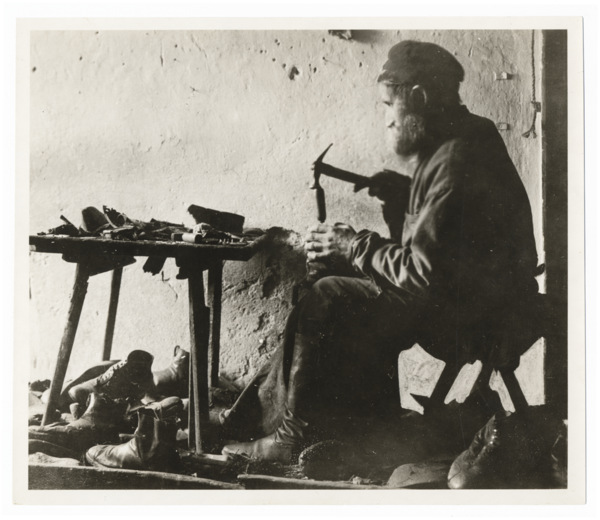Over at Worlds Without End, Walker Wright (along with Allen Hansen) have an absolutely awesome blog post called: “All Things Unto Me Are Spiritual”: Worship Through Corporeality in Hasidism & Mormonism (Part 1). It’s an ambitious work, embracing millennia of religious history (from ancient Judaism to early Mormonism) and some theology that is really dear to my heart.
I remember getting into an argument with an older man when I was a teenager about the extent of the sacred in life. I believed that all experiences could be spiritual, and that it was up to us to recognize the spirituality in ordinary day life. I thought this was fairly plain, but he scoffed at the idea. Perhaps it’s not so universal after all? In any case, that concept is at the heart of the idea of worship through corporeality which, in simple terms, simply means finding opportunities worship in your every day life.
Walker and Allen start out with a legend of Enoch as shoemaker. Originally, the myth was that Enoch focused his mind on the divine with every step of the shomaking process and so, over time, grew closer and closer to God until God took him up to heaven. But I like a much later interpretation of the story from R. Israel Salanter in the 19th century:
This does not mean that when Enoch sewed together shoes he was cleaving to supernal thoughts. The law forbids it, for how can he be occupied with something else when he is employed on behalf of other people? Rather, the essence of his unifications was the concern that each and every stitch would be good and strong in order for people to benefit from the shoes. Thus he cleaved to the attribute of his maker who bestows his beneficence on all, and this is how he performed unifications, desiring nothing other than to cleave to the attributes of his maker.
This should have strong echoes of the Mormon scripture Mosiah 2:17.:
And behold, I tell you these things that ye may learn wisdom; that ye may learn that when ye are in the service of your fellow beings ye are only in the service of your God.
And, of course, it’s the same principle that was taught by Christ:
And the King shall answer and say unto them, Verily I say unto you, Inasmuch as ye have done it unto one of the least of these my brethren, ye have done it unto me.
In any case, go read the whole article. There’s a lot going on there, and I’m excited to see where Walker and Allen take the topic next.

The thing I love about this idea of worship is that it’s so basic it can be and is practiced by individuals in just about any system of belief.
I remember seeing this on a monument in a roundabout in the city of Amritsar, India (one of the most spiritually and culturally significant cities for the Sikhs):
https://picasaweb.google.com/lh/photo/ERFaWIHDlonGfFE0kVsH39MTjNZETYmyPJy0liipFm0?feat=directlink
Nate, love that picture!